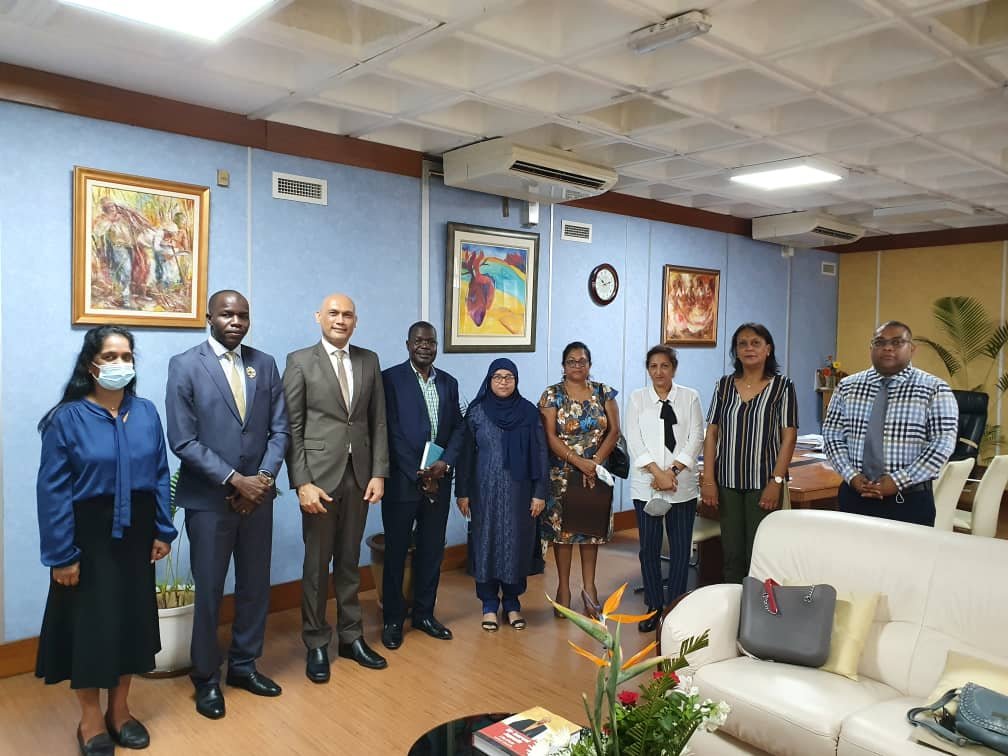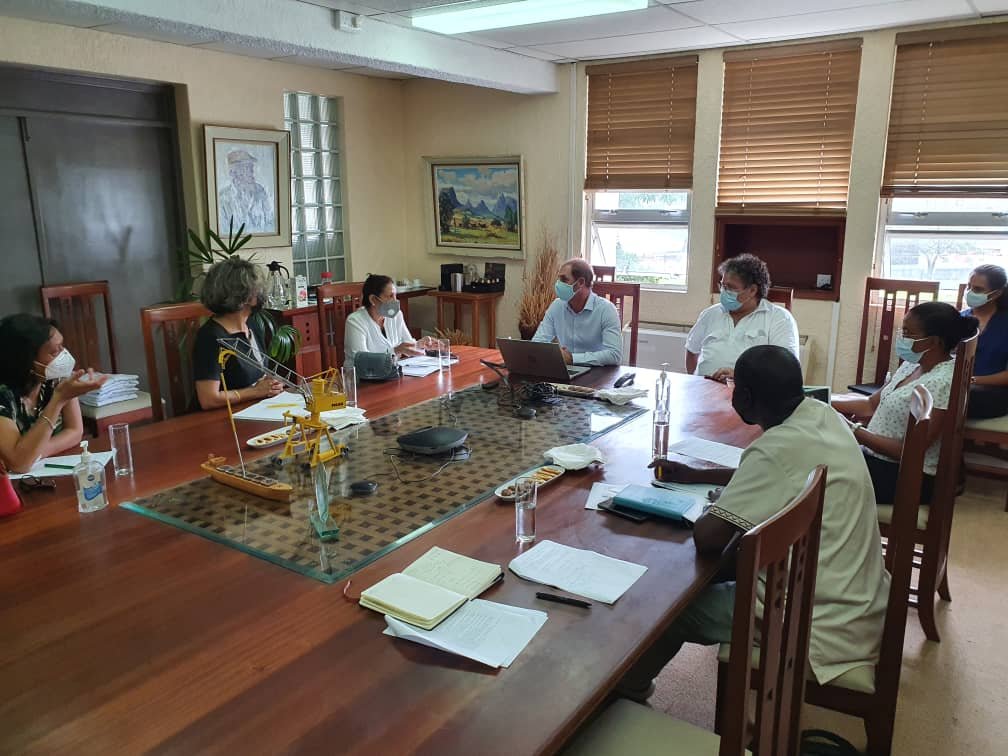
Photo: Meeting with the Minister of Health (FFI)
Mauritius first began planning its wheat flour fortification program in 2018 and has since made tremendous progress.
FFI, the Southern African Development Community (SADC), and the Food and Agriculture Organization of the United Nations (FAO) have been important resources for Mauritius in the development of its fortification program. A recent FAO grant, which concluded in December 2022, supported FFI and SADC to provide Mauritius with technical assistance to develop mandatory fortification regulations and national fortification standards that follow regional minimum standards set by SADC. Beyond the FAO grant, FFI will provide technical assistance to Mauritius as it implements the fortification program.
In 2022, Mauritius progressed rapidly through grant activities and the drafting of a 2023-2028 fortification strategy. Finalized regulations and standards will soon be gazetted, and implementation of wheat flour fortification is expected to begin in 2023: a singular achievement.
Mauritius is an ideal candidate for wheat flour fortification: the average person in Mauritius consumes a large amount of wheat flour—220 grams per day—and there is only one company that mills wheat flour on the island nation, making fortification relatively easy to implement and monitor. Furthermore, there is a tremendous opportunity to prevent life-threatening health consequences of micronutrient deficiencies like neural tube defects and anemia through food fortification. Fortifying wheat flour with folic acid, iron, and other micronutrients would reduce the number of babies born with a neural tube defect and lower rates of anemia among women of reproductive age.

Photo: Discussions at Les Moulins de la Concorde, Mauritius’ sole mill (FFI)
FFI first provided technical assistance to the Government of Mauritius in 2020 through the drafting of a costed implementation plan for fortification, which was presented to and accepted by the government. Several subsequent national-level meetings helped operationalize the action plan among the various stakeholders. With FAO and SADC support in 2021 and 2022, FFI completed a landscape analysis and a cost-benefit analysis of fortifying wheat flour. FFI worked closely with the Government of Mauritius and SADC to develop mandatory wheat flour fortification legislation and standards that meet the needs of Mauritius and SADC regional standards. FFI expects the new regulation to pass quickly and that the country’s newly minted fortification standards will be published in 2023. Lastly, the Mauritius fortification strategy includes plans for implementing, financing, monitoring, and evaluating the fortification of wheat flour.
Despite the end of FAO’s grant, FFI will continue to support Mauritius in the implementation of the fortification strategy, standards, and regulation. FFI’s next steps include supporting partners in Mauritius to establish a quality premix supply, to build capacity of the industry and markets to monitor fortification standards compliance, and to advocate for fortification to the public. In the coming years, FFI and SADC expect fortification to become built into consumer expectations and for the people of Mauritius to reap the benefits of a healthier, more nutritious life.



